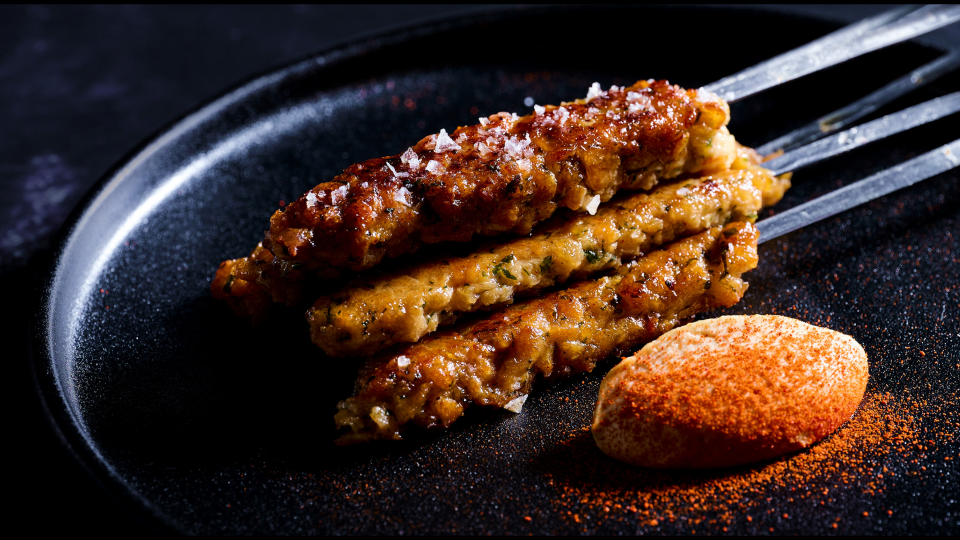
From the Director: June
Cultured meat to be available in Australia (soon)
While attending the Asia-Pacific Agrifood Innovation Summit in Singapore last November, Victoria Taylor, GAICD, Sam Perkins and I took some time out to try cultured meat – in this case Vow’s cultured Japanese quail parfait – at one of Singapore’s great food-experience restaurants. Interestingly, until recently, Australian regulations have prohibited Vow from selling their cultured meat products in Australia despite producing the quail parfait in Sydney. While still subject to Ministerial approval, Food Standards Australia New Zealand (FSANZ) have just updated their definitions for genetically modified food to address advances in gene technologies while continuing their focus on food safety. In announcing the changes, FSANZ CEO Dr Sandra Cuthbert said the new definitions “are outcome-based, focusing on the change that has been made rather than the process used to make the change”. For Vow, this means that Australian consumers should soon (finally!) be able to try their cultured meat products without needing to travel to Singapore.
More widely, the FSANZ decision means that cultured meats are no longer just a theoretical product, they are real and available for consumers to try. As costs of production fall, they open opportunities to diversify ways for the agrifood sector to produce protein-rich foods.
Made & Grown: tickets on sale now
The decision by FSANZ highlights the need for policy makers, industry stakeholders and researchers to be across the evolving biotechnologies that are shaping our food system. In light of this, AFII is partnering with Cellular Agriculture Australia to deliver an in-person event at The Australian National University on 21 August. ‘Made & Grown – The Future of Food’ is designed to support legislators, policymakers and regulators to understand the technologies, applications and products that are changing how we produce food, and how they could shape a resilient food system. The event will explore intersections between the bioeconomy and national security, how plants can be used as factories to make novel functional ingredients and novel industrial filtration systems, and how innovations in biomanufacturing are bringing cell agriculture products to consumers, both as novel products and in B2B supply chains. The event will highlight the need for the public and university sectors to work together to ensure our policy, research and financial settings enable Australia to maximise the opportunities presented by advanced food biomanufacturing. If this sounds something you would value, make sure you purchase a ticket soon!
Welcome Dr Dirk van der Kley to the Agrifood Hub
A key voice into the design of the Made & Grown event has been Dr Dirk van der Kley. Based at the ANU National Security College, Dirk heads the university Genes and Geopolitics program at ANU. His research specialises on geopolitical aspects of technology competition and innovation, with a particular interest in biological technologies. It has been fascinating to learn more about the national security aspects of biotechnology innovation, and how Australia has an opportunity (and need) to be a global leader in how such technologies can shape future economies and buffer against adverse geopolitical events. Dirk is a great example of how ANU contributes to addressing complex agrifood challenges – not through traditional agricultural research but through looking at those challenges through a national security lense. With Dirk’s current work requiring him to interact with the agrifood researchers and industry stakeholders, Dirk has moved his research group from the Crawford School of Public Policy into the Agrifood Hub. Welcome Dirk!
ACIAR workshop: supporting Mongolia to revitalise its pastoral agricultural sector
Earlier in June, I was invited by Professor Yu Sheng – an agricultural economist at the Crawford School – to participate in an ACIAR-supported workshop that was part of a project to help Mongolia revitalise its pastoral agricultural sector. The project unites policymakers, researchers, and practitioners from Mongolia and Australia to share insights on agricultural policy evolution, focusing on rural transformation, resource management, biosecurity, government support mechanisms, and trade facilitation. What was interesting about the event was how Australia could help Mongolia not just by sharing learnings from policy initiatives that work, but also those that have not worked, particularly in areas such as land degradation and water management. The workshop was also another example of how ANU has deep expertise in areas such as agricultural economics, value chain resilience, and international trade agreements and non-tariff measures.
India-Australia Awards delegation
It was a pleasure to host an India–Australia Awards delegation at the Agrifood Hub during June. The delegates showed great interest and engagement in learning about the ANU–ARC Future Crops Centre, the ARC Training Centre in Plant Biosecurity and the Australian Plant Phenomics Network facilities. Being based in Canberra continues to offer valuable opportunities to connect with delegations from around the world. I hope this visit will help build lasting connections with future policy leaders in India.
Plant Synbio facility launched
This month, the Plant SynBio facility at ANU was launched. This new capability enables ANU to create gene-edited and genetically modified plants, supporting the development of climate-resilient crops for the future. The facility covers the full synthetic biology pipeline, including the design of molecular components, genetic editing and transformation, and the phenotypic evaluation of bio-designed plants. Its establishment adds to the University’s significant research expertise and infrastructure which can support a more sustainable and thriving Australian agricultural sector.
